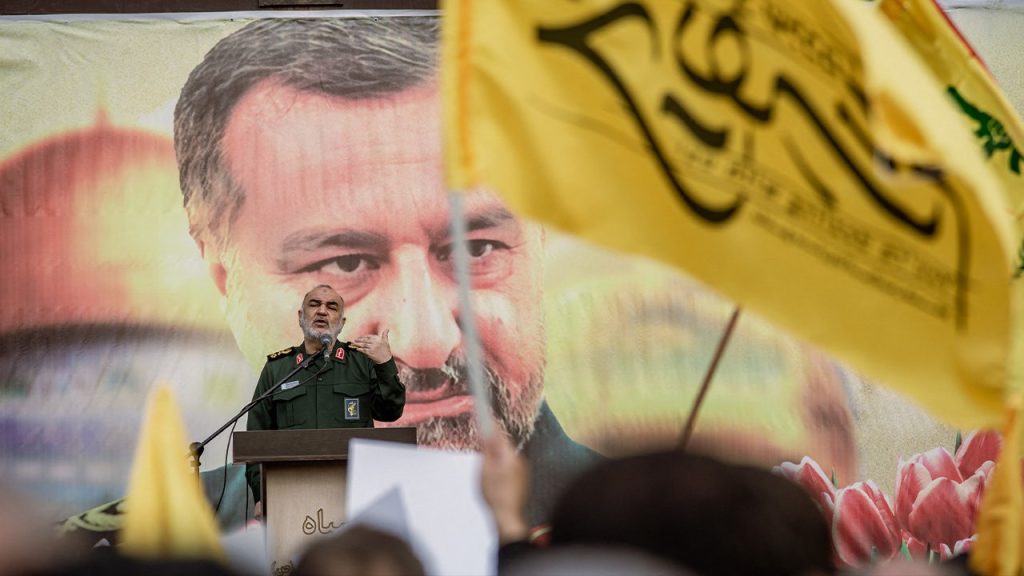Iran has been threatening a “nightmare” attack on Israel following the killing of Hamas leader Ismail Haniyeh and the country’s unchecked nuclear development program. The Commander of Iran’s Islamic Revolutionary Guard Corps, Hossein Salami, stated that Israel is anxious over the threat of a “painful and different” attack. Despite the ominous tone, Iran has been making similar threats for over a month and has blamed Israel for the assassination of Haniyeh, though Israel has not taken credit for the killing. Concerns are high that Iran could launch retaliatory strikes through Hezbollah, a terrorist organization it has backed, sparking fears of a broader regional war.
Israel’s Foreign Affairs and Defense Committee member, Nissim Vaturi, warned that war between Israel and Hezbollah in Lebanon is imminent, and Israel needs to take a provocative approach to pre-emptively strike Hezbollah strongholds through a series of airstrikes and ground invasion. Security experts have raised concerns over potential casualty rates that could surpass those seen during prior conflicts. Iran has not provided specific details on how it will carry out the retaliatory strike against Israel, but reports indicate the supply of ballistic missiles to Hezbollah has heightened security experts’ alert.
While Iran is not believed to possess nuclear-grade weaponry, the United Nations nuclear watchdog issued a warning that Tehran’s nuclear program has run unchecked for over three and a half years. The Director General of the International Atomic Energy Agency stated that Iran has stockpiled highly enriched uranium metals at levels near weapons-grade purity. Iran has not made progress in resolving outstanding safeguards issues and the Agency has called on Iranian President Masoud Pezeshkian to engage in constructive dialogue to address the concerns. The European Union has accused Iran of providing short-range ballistic missiles to Russia for its war effort against Ukraine, threatening new and significant restrictive measures against Iran if confirmed.
The European Union is still investigating claims that Iran provided short-range ballistic missiles to aid Russia in its war effort against Ukraine. Iran’s unchecked nuclear program has raised concerns globally, with the U.S. and other Middle Eastern nations cautioning against potential attacks on Israel that could lead to a broader regional conflict. The threat of war between Israel and Hezbollah remains high, and Israel is considering a preemptive strike to contain potential threats. Further developments in Iran’s nuclear program and involvement in conflicts in the region continue to be monitored closely by global security organizations.
The warning issued by the United Nations nuclear watchdog has highlighted the urgency for Iran to address outstanding issues regarding its nuclear program. Iran’s stockpiles of highly enriched uranium metals and false claims about its nuclear activities have raised alarm bells among international agencies. The need for Iran to engage in constructive dialogue to address these concerns has been emphasized by the Director General of the IAEA. The potential repercussions of Iran’s involvement in conflicts in the region, including providing arms to other nations, have led to international condemnation and threats of further restrictive measures.
The ongoing threats from Iran towards Israel and the broader Middle East region underscore the volatile nature of the geopolitical landscape. The possibility of a broader regional conflict fueled by Iran’s nuclear ambitions and support for terrorist organizations like Hezbollah continues to be a major concern for global security. The need for diplomatic engagement and dialogue to de-escalate tensions and address outstanding issues regarding Iran’s nuclear program is crucial in preventing further conflict and instability in the region. The international community must remain vigilant and coordinated in response to Iran’s actions to ensure peace and security in the Middle East and beyond.


